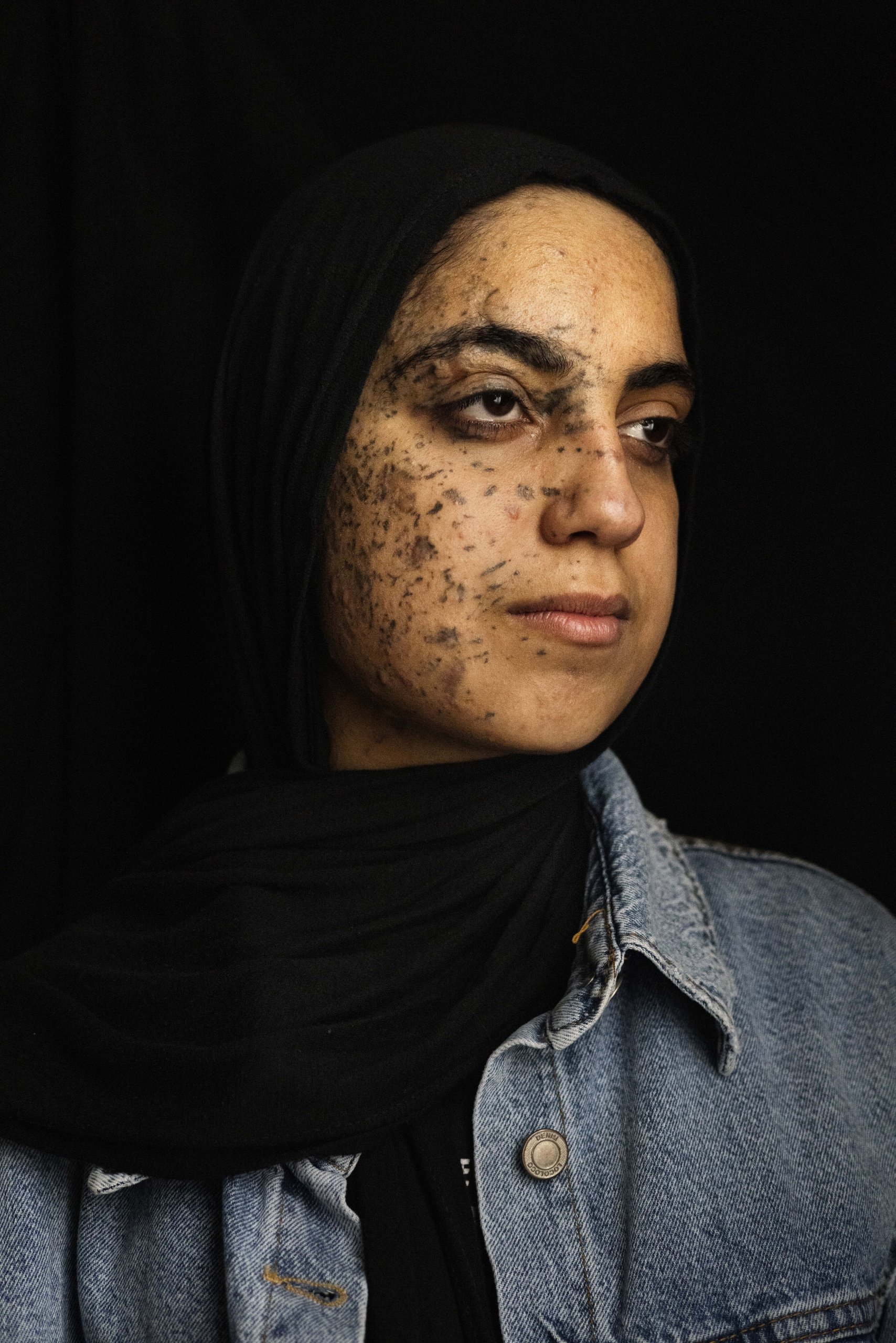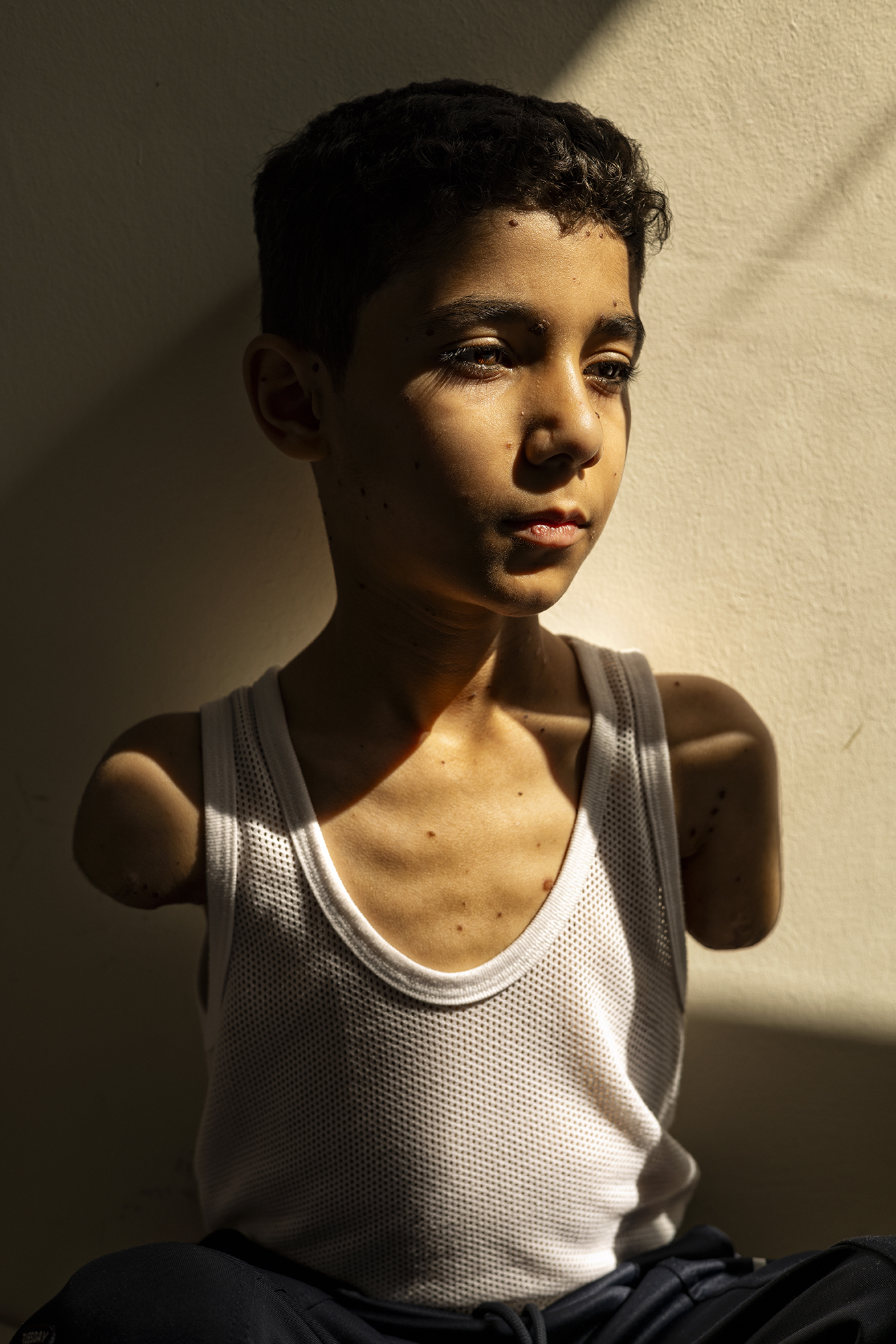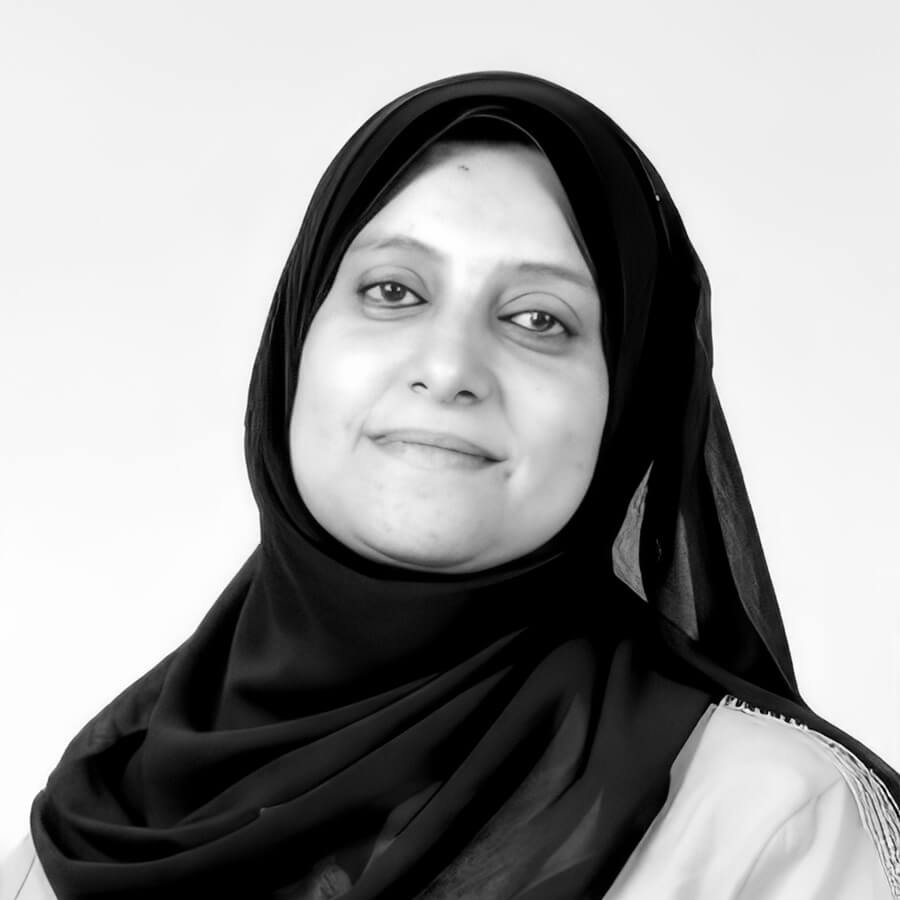Samar Abu Elouf
Samar Abu Elouf is a Palestinian photographer and photojournalist born in Gaza in 1983 and currently based in Doha, Qatar. A self-taught image maker, she began her career in 2010 documenting everyday life in Gaza using her mobile phone. Her work has since evolved into a powerful body of photojournalism focused on conflict, displacement, and resilience. Samar’s photography centres on women and children, highlighting the human cost of war while also revealing dignity and courage amidst suffering and loss.
Over the years, Samar has built a career as a freelance photojournalist, contributing to major international publications and organisations including The New York Times, Reuters, Middle East Eye, UN Women and the World Health Organisation. She has covered subjects ranging from daily life in Gaza to the devastating impacts of Israeli airstrikes, border protests and humanitarian crises. Her long-term projects, such as The Light from Hell, explore how conflict reshapes the lives of women and children.
In 2023, Samar and her four children were evacuated from Gaza to Doha with assistance from The New York Times, after her home and neighbourhood were destroyed. Despite the personal cost, she continues to produce work that bears witness to the realities of war and displacement. Her images are characterised by intimacy and quiet strength, combining reportage with sensitive portraiture. Her ability to convey both suffering and resilience has made her one of the most important contemporary voices in Palestinian photojournalism.


Amputations. Disfiguration. Brain damage. Their injuries are life-changing.
They made it out for medical treatment in Qatar, where we photographed and interviewed them. They are alive — even if some are not sure they still want to be.
Since I started the project, I have gone through very difficult and harsh moments. Some stories made me sleep for two days and I cry whenever I remember their narration of all the horror they went through. I do not know how they can continue their lives with all the terrifying details they lived. I always wonder how they sleep with all these painful memories? Is a hug enough to relieve this pain? How will they continue their lives?
The New York Times asked Abu Elouf to make portraits of these survivors. It took time for her to learn portraiture, but the survivors opened up to her almost instantly. The resulting portraits are sensitive and wrenching, taken with the empathy of someone who has endured similar pain, movingly showing the evacuees as they are, trying to adjust to life in a strange land without legs, arms, an eye, or a family.
Participation in an exhibition on women in Palestine in Cairo 2021.
Participation in an exhibition about women during the Corona pandemic in Germany 2021.
* Participation in an exhibition about war during May in Germany 2021.
* Participation in an exhibition about war during May, in Sarajevo 2021.
* Participation in an exhibition about war during May in Germany 2022
* An exhibition of photos of the 2024 Gaza War in Germany.
*“MY HOME” Photo Exhibition in Sarajevo 2024
